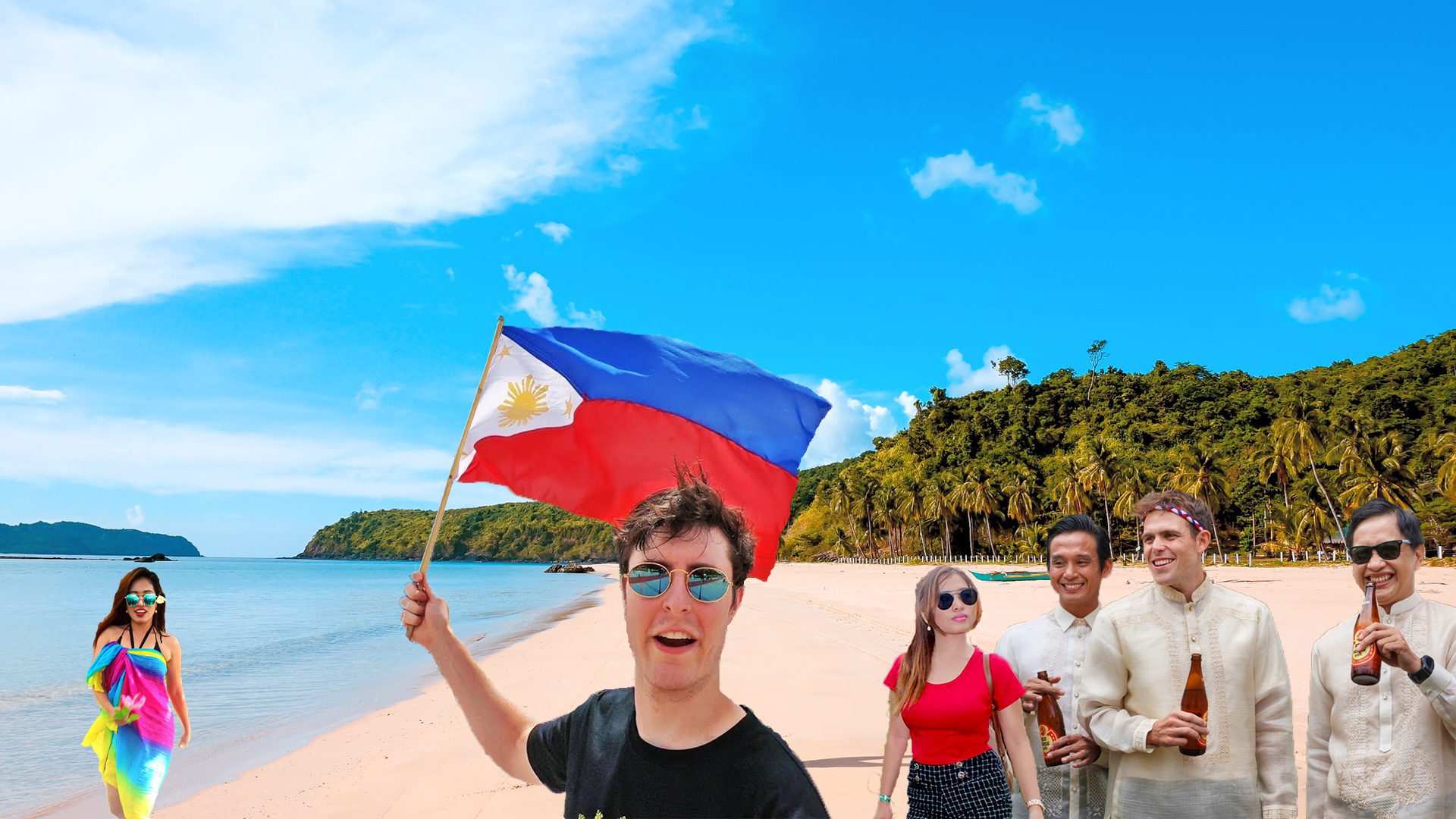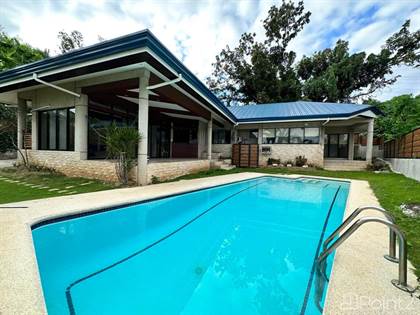Foreigners can live in the Philippines by obtaining the appropriate visa, understanding the local culture, securing accommodation, possibly finding employment, and integrating into the community.

Introduction
An introductory exploration into why the Philippines, an archipelago in Southeast Asia, has grown in popularity as a destination for foreigners looking to relocate. The country offers a unique blend of Asian, Spanish, and American cultures, with English widely spoken. Plus, it’s home to some of the world’s best beaches, diverse wildlife, and vibrant cities.
Background of the Philippines
The Philippines is a fascinating country located in Southeast Asia, renowned for its rich biodiversity and multicultural heritage. The country’s unique geographical positioning makes it a hotspot for various natural wonders such as volcanoes, mountains, and countless pristine beaches.
Why Choose the Philippines?
Choosing to live in the Philippines opens up a world of opportunities. From career progression in a rapidly growing economy, to experiencing a unique culture and lifestyle, there’s much to explore in this tropical paradise.
Advantages of Living in the Philippines
The Philippines offers numerous benefits for foreigners looking to relocate. It’s not just the stunning landscapes and friendly locals that make the Philippines a desirable location, but also the low cost of living, the familiarity of the English language, and the warmth and hospitality of its people.
Low Cost of Living
| Expense Category | Approximate Cost |
|---|---|
| Rent (One-bedroom apartment in city center) | $300 – $600 |
| Rent (One-bedroom apartment outside city center) | $200 – $400 |
| Utilities (Electricity, Heating, Cooling, Water, Garbage) | $60 – $120 |
| Internet (60 Mbps or more, unlimited data, Cable/ADSL) | $30 – $50 |
| Groceries (Milk, Bread, Eggs, Fruits, Vegetables, Chicken, Beef, etc.) | $200 – $300 |
| Transportation (Monthly pass for public transit) | $15 – $25 |
| Meal (Inexpensive Restaurant) | $3 – $5 |
| Fitness Club (Monthly fee for one adult) | $20 – $35 |
| Cinema (One ticket) | $4 – $6 |
English Proficiency
English is widely spoken in the Philippines, making it easier for foreigners to communicate and integrate into the local society. This linguistic advantage eliminates many of the communication barriers faced when moving to a new country.
Friendly Locals and Warm Hospitality
Filipinos are known for their hospitality, and their warmth and friendliness are often cited by foreigners as one of the main reasons they enjoy living in the country. The Philippines’ strong sense of community ensures that newcomers feel welcomed and quickly become part of local life.
Rich Natural Beauty and Biodiversity
The Philippines boasts some of the world’s most beautiful landscapes, from its pristine beaches to its stunning mountain ranges. The country’s incredible biodiversity also means that nature lovers will always have new flora and fauna to discover.
Securing Legal Status
Securing legal status involves understanding the various types of visas and permits, and then determining which one best suits your individual needs. Whether you are planning on becoming a long-term resident, or are looking for an extended stay as a visitor, there are several options available.
Understanding Types of Visas and Permits
Different types of visas and permits are available for foreigners wishing to stay in the Philippines. These include the Tourist Visa, the Employment Visa, the Student Visa, the Business Visa, the Retirement Visa, and various others. Each visa type has its own set of requirements and conditions, so it’s essential to carefully review these before applying.
Applying for a Philippine Resident Visa (PRV)
If you’re looking to become a permanent resident of the Philippines, you’ll need to apply for a Philippine Resident Visa (PRV). The process includes proving financial capability to support yourself in the Philippines, presenting a medical certificate, and providing character references, among other requirements. There are also special categories for those who are married to a Filipino citizen or former Filipino citizen, and for those who are children of Filipino citizens.
Long-Term Visitor Extension Visa
For those looking to stay longer than the typical 30-day tourist visa allows, the Long-Term Visitor Extension Visa is a suitable choice. This visa allows visitors to extend their stay for an additional two months at a time, for up to 36 months in total. To apply, you will need to submit your passport, the application form, and pay the necessary fees. It’s a straightforward process, but it’s crucial to plan ahead to ensure you have all the required documents and enough time to complete the application process.
Accommodation and Real Estate
A crucial aspect of living in the Philippines is finding a place to stay. Whether you plan to buy property or rent, understanding the Philippine real estate market is crucial for making informed decisions.
Buying Property as a Foreigner in the Philippines
While buying property in the Philippines as a foreigner involves certain restrictions, it’s not entirely impossible. Foreigners can own condominium units as long as Filipino citizens or corporations own at least 60% of the condominium corporation. However, foreigners cannot own land outright. For more detailed information, it’s always best to consult a local real estate expert or a lawyer.
Renting in the Philippines: What to Expect
Renting in the Philippines offers more flexibility and fewer restrictions for foreigners. Whether you choose to live in a city or a coastal area, you can find a wide range of accommodation options that fit your lifestyle and budget. Generally, you will need to provide identification, proof of income, and occasionally, references from previous landlords.

Understanding Property Rights and Restrictions
| Visa/Permit Type | Validity | Conditions |
|---|---|---|
| Tourist Visa | 30 days, extendable | For tourism, business, and medical purposes |
| Long-Term Visitor Extension Visa | Extendable up to 36 months | For tourists who wish to extend their stay |
| Business Visa | Based on the purpose and nature of the trip | For conducting business matters, not for employment |
| Employment Visa (9G Visa) | 1-3 years, extendable | For foreigners who have a legitimate employer in the Philippines |
| Special Resident Retiree’s Visa (SRRV) | Indefinite | For retirees and former Filipino citizens |
| Student Visa (9F Visa) | Duration of the study program | For foreigners intending to study in the Philippines |
Work and Employment
Working in the Philippines provides foreigners with the opportunity to build a career while enjoying the unique lifestyle that the country offers.
Job Market Overview in the Philippines
The Philippine job market offers diverse opportunities, especially in sectors like IT, customer service, education, and tourism. The Business Process Outsourcing (BPO) industry also continuously attracts many foreign workers due to the country’s high English proficiency.
Applying for a Work Permit
To legally work in the Philippines, foreigners must obtain a work permit. The Alien Employment Permit (AEP) issued by the Department of Labor and Employment (DOLE) is typically required. However, the process can vary depending on your circumstances, so consulting with an immigration expert is recommended.
Establishing a Business as a Foreigner
Starting a business in the Philippines as a foreigner is a viable option, especially given the country’s developing economy. There are certain restrictions under the Foreign Investment Act, but many opportunities exist, particularly in areas identified as investment priorities by the government.
Education and Family Life
For families considering a move to the Philippines, understanding the education system and local family culture is crucial.
Overview of the Education System in the Philippines
The education system in the Philippines is managed by the Department of Education (DepEd) for basic education, and the Commission on Higher Education (CHED) for tertiary and graduate education. It has recently transitioned from a 10-year basic education program to a 12-year K-12 program, aligning it with international standards.
Registering Children in Schools
To register children in local schools, you will need to provide various documents, including a birth certificate, a report card from their previous school, and a medical certificate. In addition, many international schools in the Philippines cater to various foreign curricula and offer globally recognized qualifications.
Understanding Filipino Family Culture and Traditions
Family is of utmost importance in the Philippines, with close-knit relationships spanning multiple generations. Celebrations, daily meals, and even day-to-day decisions often involve the whole family. Understanding and respecting these family values can help ease your integration into Filipino society.
Filipino Social and Cultural Etiquette
Understanding local customs and etiquette is key to building successful relationships in the Philippines.

Essential Cultural Norms and Practices
Filipino culture is a blend of indigenous, Spanish, American, and Asian influences, creating a unique set of norms and practices. Respect for elders is paramount, and “Filipino time”, the local understanding of punctuality, is one of the cultural nuances you’ll need to adjust to.
Communication Styles in the Philippines
Communication in the Philippines is often indirect, with an emphasis on maintaining harmony and avoiding confrontation. Learning to navigate these subtle nuances is vital for effective communication. Filipinos also appreciate the effort to learn some basic phrases in Tagalog, the national language.
Building Relationships and Making Friends
Filipinos are generally warm and hospitable, making it easy to build relationships. Joining local community groups, participating in local events and celebrations, and embracing Filipino customs can all help in making friends.